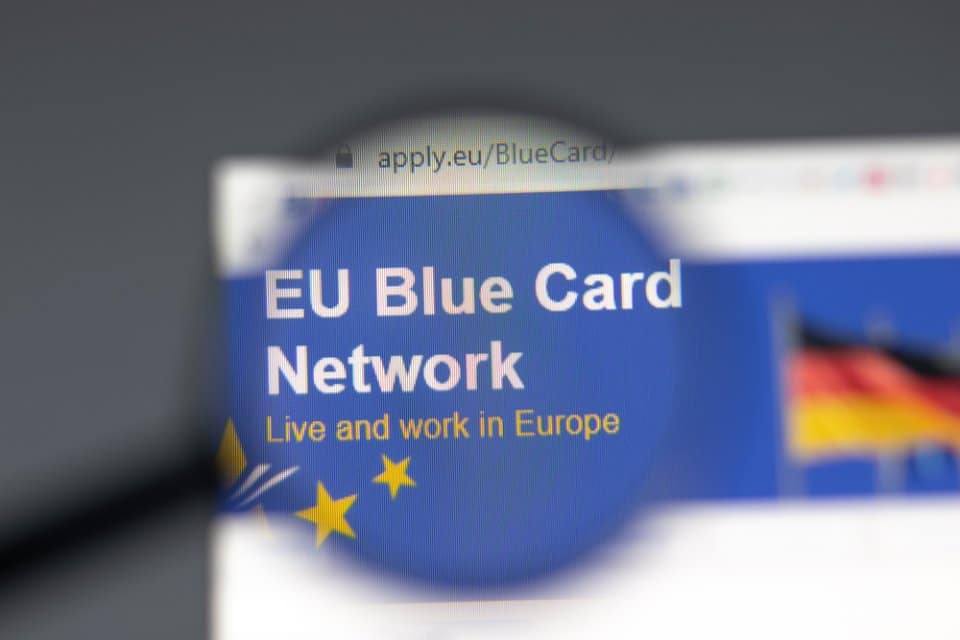EU Nations Simplify Blue Card Rules to Attract Skilled Foreign Workers

In 2024, four European Union member states—Greece, Estonia, Italy, and Slovakia—have streamlined their EU Blue Card regulations in an effort to attract more highly qualified foreign professionals. The EU Blue Card is a permit that allows non-EU citizens to live and work within the European Union, with eligibility criteria varying slightly by country.
While all EU nations adhere to certain standard requirements for the Blue Card, individual countries have the flexibility to adjust specific rules. This year, the aforementioned four countries have taken significant steps to make it easier for skilled workers to obtain the Blue Card, as reported by Schengen.News. In addition to these countries, Sweden has also announced plans to relax its Blue Card conditions, with changes expected to be implemented soon.
Greece has made it easier for foreign professionals to apply for an EU Blue Card by allowing those who enter the country under a visa-free regime or with a short-stay Schengen visa to apply directly for the Blue Card since June 5, 2024. Additionally, Greece has modified its pre-screening requirements, making this step optional for applicants. Although skipping pre-screening can speed up the process, it is recommended that it is undertaken to minimize the risk of application rejection or the need for additional documentation. The Greek Blue Card requires an initial fee of $335 and is valid for two years, with a renewal fee of $502.
Estonia has also made significant changes to its Blue Card regulations as of April 2024. The country now allows applicants with five years of professional experience in a relevant field to apply for the Blue Card without needing to provide educational qualifications, a requirement that previously limited eligibility to university graduates. Estonia has also reduced the job offer duration and adjusted the period during which Blue Card holders can remain unemployed within the country. Those who have held a Blue Card for less than six years can now remain unemployed for up to three months, while those with more than two years of holding the card can stay unemployed for up to six months. Moreover, Estonia has simplified the process for Blue Card holders to change employers, removing the need for labor market testing, although workers must still notify their current employer of their intention to switch jobs.
Italy has taken steps to simplify the hiring process for employers seeking to bring in foreign professionals under the EU Blue Card. Employers can now submit requests online through a dedicated portal, making it easier to connect with highly qualified non-EU workers. Once the necessary requirements are met, these workers can be issued an EU Blue Card. The minimum salary threshold for obtaining an Italian Blue Card is approximately $27,680, and the initial application and renewal fees are set at approximately $112 each.
Facing labor shortages, Slovakia has also relaxed its Blue Card rules, effective July 15, 2024. The country has broadened the eligibility criteria by relaxing the professional experience requirements, allowing employers to hire from a larger pool of skilled workers. Slovakia has also extended the Blue Card’s validity from four to five years and lowered the minimum salary requirement to 1.2 times the average national salary, making the card more accessible to foreign professionals.
Sweden is preparing to introduce changes to its Blue Card regulations. The country plans to reduce the minimum salary requirement from 1.5 times the average monthly salary to 1.25 times, which would lower the eligibility threshold to approximately $4,800 per month. Sweden also aims to simplify the process for those who already hold a Swedish residence and work permit to switch to an EU Blue Card. Additionally, the new rules will make it easier for Blue Card holders from other EU countries to obtain a Swedish Blue Card.
Have you read?
Countries: Powerful Passports.
Countries: Richest.
Countries: Poorest.
Countries: Happiest.
Countries: Life Expectancy.
Bring the best of the CEOWORLD magazine's global journalism to audiences in the United States and around the world. - Add CEOWORLD magazine to your Google News feed.
Follow CEOWORLD magazine headlines on: Google News, LinkedIn, Twitter, and Facebook.
Copyright 2025 The CEOWORLD magazine. All rights reserved. This material (and any extract from it) must not be copied, redistributed or placed on any website, without CEOWORLD magazine' prior written consent. For media queries, please contact: info@ceoworld.biz








